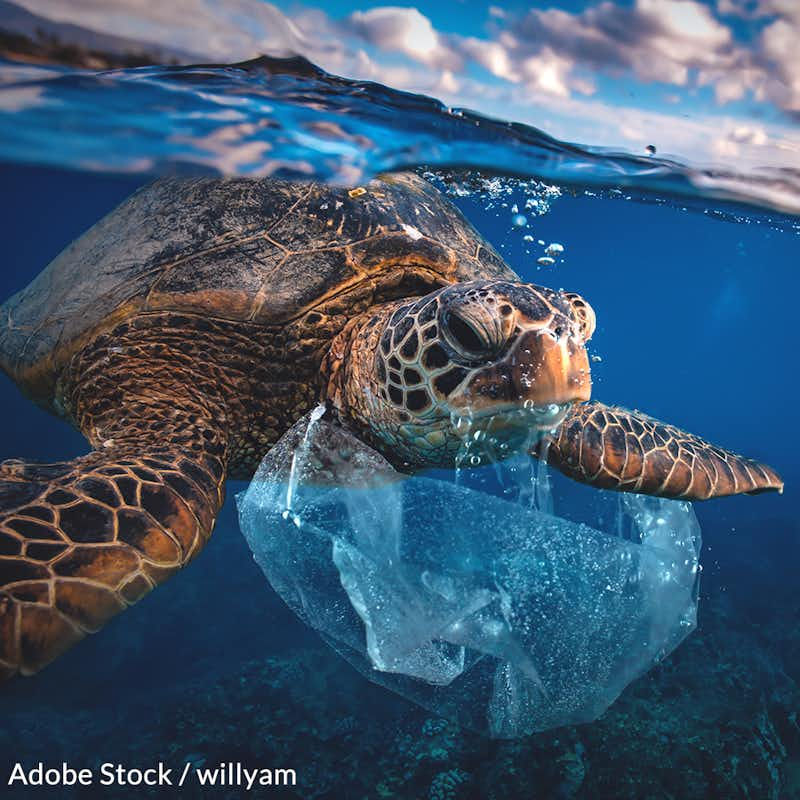Take the Plastic Bag Pledge and Cut Out Pollution!
25,737 signatures toward our 50,000 Goal
Sponsor: The Rainforest Site
Plastic shopping bags cause some of the worst environmental pollution in the world. Pledge to cut them out!

You may not see them on your list, but paper and plastic bags are the deadliest items you can find at a grocery store. These pollutants are widely available, often for free, and have become a part of many people's daily lives outside the market. But while paper and plastic bags are sometimes reused for lunch-bags or picking up after pets, their production and ultimate destination result in horrific environmental consequences.
American shoppers use more than 100 billion lightweight polyethylene plastic bags each year, and only a small portion are ever recycled1. Most recycling centers can't deal with them — they just clog up the machinery, and recycling paper bags costs even more2.
In the ocean, marine animals mistake floating bags for food3. Just one nibble can be deadly. Plastic bags can block the digestive tract, causing a slow and agonizing death. Other animals are strangled when bags wrap around their bodies. In all, thousands of marine animals — including sea turtles, seals, seabirds, dolphins, whales, and sharks — die each year because of plastic bags3.
It takes 1,000 years for a plastic bag to degrade in a landfill. Unfortunately, the bags don't break down completely but instead photo-degrade, becoming microplastics that absorb toxins and continue to pollute the environment4.
Each drop of water in the Earth's oceans now contains trillions of these tiny indigestible microplastics that accumulate as they move up the food-chain5.
Don't be a part of the problem — be THE solution. Sign the pledge to rethink your choices each time you take a trip to the supermarket — it could change the world!!
- United States Environmental Protection Agency (15 January 2021), "Frequent Questions regarding EPA's Facts and Figures about Materials, Waste and Recycling."
- WM Northwest (2003), "Bags by the Numbers."
- Lauren Magaziner, Lucy Calkins and Colleagues from the Teachers College Reading and Writing Project from Units of Study for Teaching Reading (2015), "Plastic Bags: Convenient and Cruel."
- Ali Chamas, Hyunjin Moon, Jiajia Zheng, Yang Qiu, Tarnuma Tabassum, Jun Hee Jang, Mahdi Abu-Omar, Susannah L. Scott, and Sangwon Suh (3 February 2020), "Degradation Rates of Plastics in the Environment."
- Andrea Thompson, Scientific American (4 September 2018), "From Fish to Humans, A Microplastic Invasion May Be Taking a Toll."
The Pledge:
As a resident of planet Earth and an advocate for a cleaner, healthier future for all of its inhabitants:
- I acknowledge that plastic bags leech harmful toxins and microplastics into the environment.
- I acknowledge that plastic bags pose tremendous physical threats to marine life.
- I acknowledge that plastic bags are harmful to the planet, and can take more than 1,000 years to decompose.
- Finally, I acknowledge that cutting plastic bags out of my life will make a bigger difference than recycling them in the long run.
I hereby pledge to cut plastic bags out of my shopping habits for the sake of our planet
Sincerely,